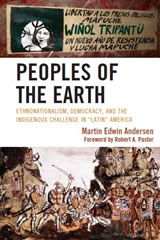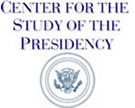But in the elusive quest for justice in the bombing, which ranks among the deadliest anti-Semitic attacks anywhere since World War II, few developments have riled Argentina’s Jewish leaders as much as the government’s move in recent weeks to improve relations with Iran, the nation shielding in the high echelons of its political establishment various people accused by Argentine prosecutors of having authorized the attack.
Each country has domestic reasons to reach out to the other. As Argentina’s economic growth slows, it is finding in Iran a robust client for its agricultural commodities, with trade volumes between the two nations surging more than 200 percent over the last five years to more than $1.2 billion.
Iran, meanwhile, is seeking to blunt its diplomatic isolation, expanding on the warm ties it has forged with other nations in Latin America, notably Venezuela, Bolivia and Ecuador.
“We cannot comprehend this,” said Guillermo Borger, the president of the Argentine Mutual Aid Association, the center that was bombed in 1994. “The world is shutting its doors to Iran, and we’re giving Iran a chance to say that Argentina is somehow now its friend. The Iranians have not budged in their assertion that their people are innocent, so why should Argentina be in dialogue with them?”
The reaction is markedly different in Tehran, where leaders have welcomed Argentina’s diplomatic pivot. “We expect this lawsuit to be dropped, and never raised again,” said Hamid Reza Taraghi, who heads the international department of the influential Islamic Coalition Party, referring to the investigative case here overseen by prosecutors. “Such a move will help ease the international pressure on our country.”
Both Argentina’s former president, Néstor Kirchner, and his widow, Cristina Fernández de Kirchner, who succeeded him, offered strong support for the investigations into the bombing. Their approach stood in contrast to that of Carlos Saúl Menem, who was president at the time of the bombing and is formally accused of obstructing the investigation. Mr. Menem, now a senator, has denied the charge.
The investigation was marred by corruption charges, delays and incompetence, but Alberto Nisman, a special prosecutor who took over the case in 2005, seemed to breathe vigor into the case. He accused Hezbollah, the Lebanese group with strong ties to Iran and Syria, of carrying out the bombing, and senior Iranian officials of planning and financing it.
Despite that, Argentina and Iran are re-engaging, informally in September at the United Nations General Assembly in New York and again in formal talks in October in Geneva. Another round of negotiations is scheduled for late November.
Not everyone among Argentina’s Jews, Latin America’s largest population with about 250,000 people, opposes the talks. In an interview, Sergio Burstein, a supporter of Mrs. Kirchner and the leader of a group representing relatives of victims killed in the bombing, said the negotiations offered a “flicker of hope” for the possibility that Iran might hand over suspects to stand trial here.
Just as mystery still shrouds many aspects of the bombing, doubt and secrecy cloak the current talks. Argentina’s Foreign Ministry has rejected requests from survivors of the attack and Jewish leaders in Argentina, made through the office of Mr. Nisman, the prosecutor in the bombing investigation, for information on the negotiations.
Foreign Minister Héctor Timerman, who is leading the diplomatic outreach, also declined a separate request for an interview on the talks, which began after Iran repeatedly refused to comply with Argentina’s order for international arrest warrants for nine people. Those suspects included a former Iranian president, Ali Akbar Hashemi Rafsanjani, and Iran’s defense minister, Gen. Ahmad Vahidi.
While Argentine and American investigators have long agreed that the suicide bombing was carried out by a militant from Hezbollah, Mr. Nisman, the prosecutor overseeing the case, has contended that the decision to attack AMIA, as the cultural center is known by its Spanish initials, was made at a 1993 meeting in the Iranian city of Mashhad in Mr. Rafsanjani’s presence.
Others involved in investigating the attack, including James Bernazzani, a former F.B.I. agent who was head of the bureau’s office on Hezbollah, have disputed the explicit link to Iran.
In a telephone interview from the United States, Mr. Bernazzani, who assisted the Argentines in their investigation, criticized their circumstantial cross-referencing of telephone records, without actually having intercepts of those calls, to make the case that Mohsen Rabbani, Iran’s cultural attaché in Argentina in 1994, was involved in coordinating the attack.
In addition, Mr. Bernazzani questioned Argentine investigators’ use of testimony by an Iranian defector whose reliability has been called into question. “Although I highly suspect Iranian complicity because of the relationship with Hezbollah, that does not stand up to F.B.I. standards,” he said. “We need proof, and what we proved was an individual who was in that van was the son of a leading Hezbollah patriot.”
Of course, Ibrahim Hussein Berro, the 21-year-old Lebanese man identified through DNA analysis as the suicide bomber at the helm of the Renault van, is dead. Another suspect, Samuel Salman El Reda, a Colombian whom Argentine prosecutors accuse of coordinating the Hezbollah cell that carried out the bombing, is thought to be living in Lebanon.
Meanwhile, the Iranians connected to the case seem to be unhindered by the arrest warrants against them. In an October interview from the Iranian city of Qum with a Brazilian newspaper, Mr. Rabbani, Iran’s former cultural attaché here, scoffed at Argentina’s investigation, proclaiming his innocence. General Vahidi, Iran’s defense minister, traveled in 2011 to neighboring Bolivia.
Adriana Reisfeld, the president of Active Memory, a group representing relatives of people killed in the attack, said her expectations were low that the diplomatic overtures with Iran would lead to closure.
“All we want now is to get as close to justice as we can,” said Ms. Reisfeld, whose sister was killed in the blast. “We can’t let the AMIA case close and be forgotten.”






